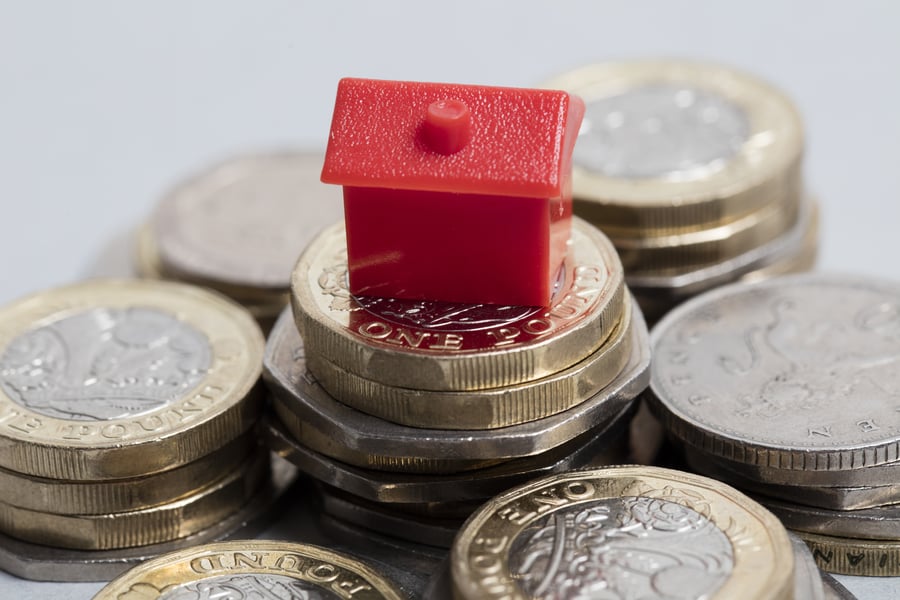Despite the recession in 2020, government support has reduced the number of forced sellers and limited the downside for house prices.

House prices are set to hold firm for the remainder of the year, despite the onset of recession and rising unemployment, according to research by Zoopla.
Despite the recession in 2020, extensive government support for the economy and labour market, together with support for mortgage holders, has reduced the number of forced sellers and limited the downside for house prices.
While the economy has contracted sharply and unemployment is rising, consumer spending has rebounded and various surveys of economic activity are pointing to a wider rebound in the economy.
However, the end of the furlough scheme and other government support will be the next challenge.
In the short term, Zoopla predicted that house prices will end the year 2% to 3% higher than at the start.
The cumulative increase in buyer demand since the start of 2020 is 34% higher than over the same period in 2019, above the +25% that Zoopla reported last month.
Time to sell a home has reduced across all UK regions and countries.
Driven by a supply/demand imbalance, the average time to sell a property since the lockdown restrictions were lifted is 31% lower than the same period 12 months prior.
The number of days to sell a property in the last 90 days has been 27 days, compared to 39 days over the same period in 2019.
Three-bedroom houses remain the fastest selling property on the market, with an average time to sell of 24 days since the lockdown lifted.
The supply/demand imbalance is most pronounced for three-bed houses. While they are the most in-demand property type, the proportion of available supply falls short of demand across all parts of the UK - supporting faster sales periods.
Four and five-bed houses are selling 33% faster than in 2019, while flats are taking the longest time to sell at an average of 32 days.
The flow of new supply is running 54% ahead of this time last year, but overall stock per agent remains 3% lower.
There has however been a shift in the profile of sellers, with an increase in wealthier demographics looking to move, which in turn is pushing the average asking price of a home for sale on Zoopla up 8% compared to a year ago.
Zoopla found that this shift in activity is likely being driven by rising activity in London and the South East, where housing sales volumes had previously fallen back 20% since 2015.
Richard Donnell, research and insight director at Zoopla, said: “Housing market conditions remain unseasonably strong despite the UK moving into recession.
"Demand continues to outpace supply and support house price growth of 2.5% per annum.
"Meanwhile, houses are selling faster than flats as we see a shift in buyer priorities in the wake of the lockdown and movers prioritise more space.
“The next important milestone for the housing market comes in September when schools reopen and the UK starts to get back towards a full reopening of the economy.
"The ‘once in a lifetime’ re-evaluation of housing requirements on the back of the lockdown will be a counterweight to the impact of the recession on housing market activity over the rest of 2020.
"While demand has softened over August, we expect the current momentum in market activity to continue into 2020 Q4.
“More homes being listed for sale in areas with wealthier demographics goes some way to explain the strength of the housing market at a time of recession and rising unemployment.
"With half of all homeowners having no mortgage and a large portion of the remainder having considerable equity in their homes, the constraints of affordability and mortgage availability are not spread equally across buyers and sellers.
“The demographic profile of households is not uniformly distributed by geography.
"We believe part of this shift reflects an increase in activity in London and south east England where housing sales volumes in 2019 were up to 20% lower than in 2015.
"A soft repricing of the housing in these regions over the last five years has improved affordability while the recent stamp duty changes will have contributed to more homes coming to the market for sale.
“While the economy has contracted sharply and unemployment is rising, consumer spending has rebounded and purchasing manager indices are pointing to a wider rebound in the economy.
"This is positive but the unwinding of the furlough scheme and other government support is the next challenge that will test the strength of economic recovery.
"In the short term we still believe that house prices will end the year 2% to 3% higher than at the start.”


